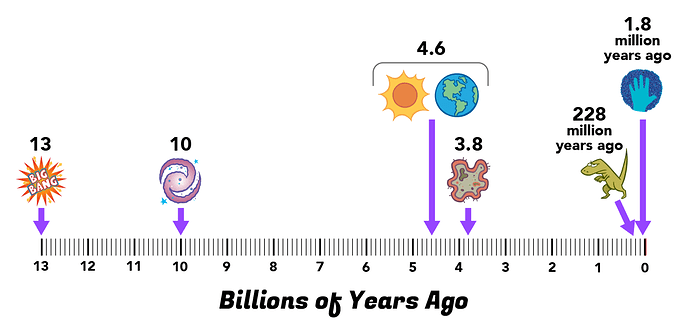In that case you’re trying to tell me two mutually contradictory things.
Being unable to tell the difference between thousands and billions is not just being a “flawed human being.” It is a level of incompetence so complete that any scientist who fails at it should not be in a lab but should be flipping burgers at McDonald’s. It is like being unable to tell the difference between six thousand years and three days. It is like being unable to tell the difference between the size of your bathroom and the size of the USA. It is like being unable to tell the difference between a cup full of dirt and Mount Everest.
And I don’t know if you noticed, but I didn’t just talk about “flawed human beings” making wheels. I talked about “flawed human beings” making self-driving cars, interplanetary probes, real-time video communications platforms operating across continents, artificial intelligence software, computer generated animation and the like.
To claim that “flawed human beings” can make self-driving cars, interplanetary probes, real-time intercontinental video communications platforms and artificial intelligence software, but at the same time cannot tell the difference between thousands and billions, is completely out of touch with reality.
Not ones that could be out by a factor of a million.
There’s something you need to understand here. Assumptions are NOT a get-out-of-jail-free card. You can’t just fob off any and every scientific finding that you don’t like by crying “assumptions” as if it were some sort of magic shibboleth.
In order to challenge a scientific theory by questioning its assumptions, you must do the following:
- State what the assumptions are.
- Make sure that the theory really does make the assumptions that you are claiming that it makes, and that it hasn’t been superseded by more modern alternatives that do not make those assumptions.
- Provide evidence that they could have been violated to a sufficient extent to support your alternative theory while giving the same measurements as an end result.
Take nuclear decay rates for example. To support a young earth, it is not sufficient to just claim that they could have been different in the past. You would have to show that they could have been accelerated by a factor of a billion. That alone would be a non-starter because it would have released enough heat to raise the temperature of the earth’s crust to 22,400°C – and that was the young earth organisations’ own admission. On top of that, you would also have to show that they could have been accelerated by a factor of a billion in complete lock-step with rates of continental drift, sedimentation, and a whole lot of other things on top of that.
At that point, you’re getting deep into the realms of science fiction. What you’d be proposing there would be God making the earth look older than it really is for no reason whatsoever other than to mess with our minds to the extent that we were no longer able to tell what is real and what isn’t. That isn’t the God of the Bible you’re talking about – it’s more akin to Q from Star Trek, or Slartibartfast from The Hitch-Hiker’s Guide to the Galaxy.
So sorry, but even if you can establish that scientists make assumptions when determining the ages of things, you’re still nowhere near making a case for a young earth.
